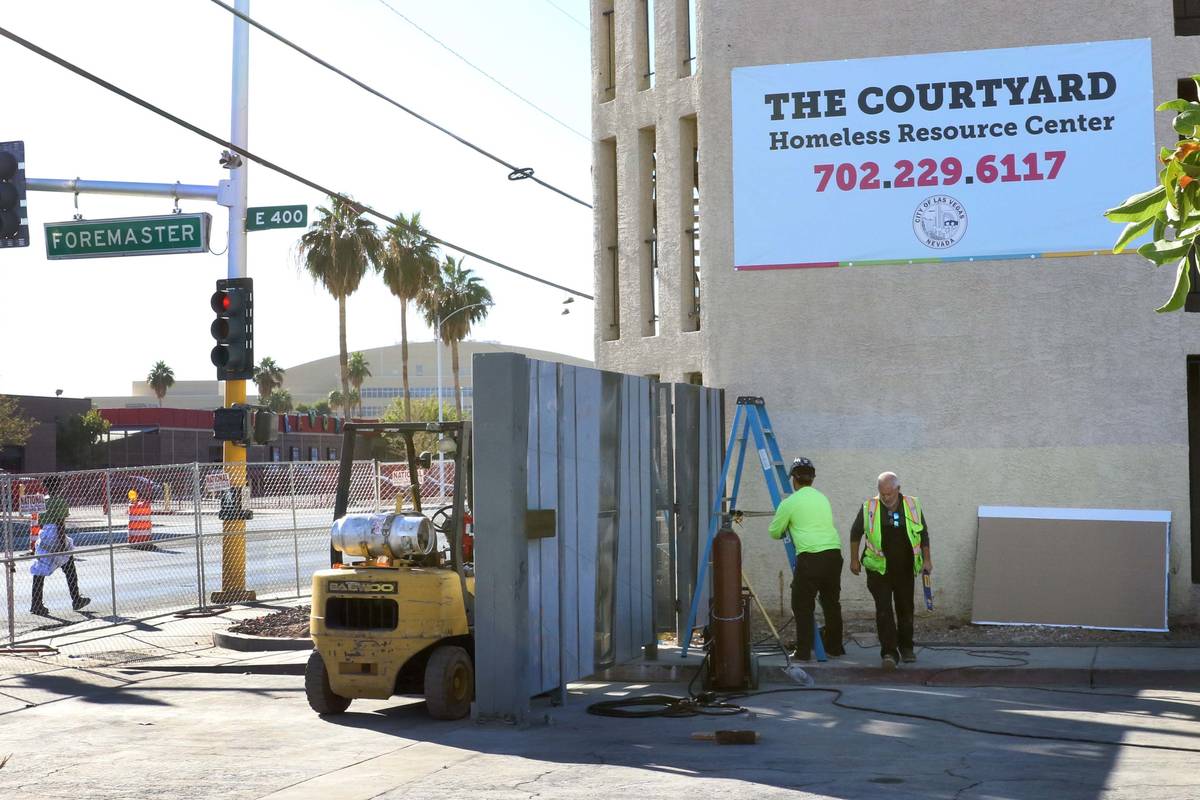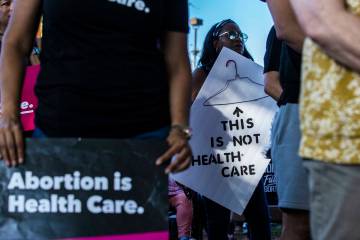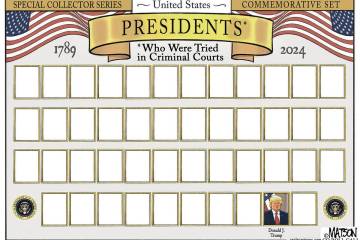NEVADA VIEWS: Partnering with Metro on homelessness
Have you ever seen a person experiencing the worst day of their life?
Most of the time, when police are called to intervene with a homeless individual, that day quickly spirals into the worst day of that person’s life — complicated usually by drug withdrawal or deeper mental health or substance abuse issues.
Typically, if a homeless person is panhandling or sleeping and the police are called, it does no good for either the homeless person or the police. What we’ve done at Vegas Stronger is partner with the police so they call us when they receive a call in the Rancho or Charleston area, and we send one of our intervention teams out, with certified mental health and substance abuse counselors.
I can speak to numerous times we’ve intervened on a police call involving a homeless person. So often after we get the person stabilized and off to treatment, both the police officers and the person say, “Thank you so much,” to us. It’s an astounding feeling.
We have been intensively working with community members and the shops within the Rancho and Charleston area for two months now. In partnership with the Metropolitan Police Department, the city of Las Vegas and shop owners, we’ve done more than a dozen interventions and gotten many homeless members of the community into treatment instead of into jail or the tunnels beneath our city.
We’ve learned a lot about how to successfully confront the problem of homelessness, including:
— Many of the humans begging, panhandling and sleeping in the Smith’s parking lot have had substance use disorders, mental health issues and developmental delays. We don’t have official statistics yet, but more than 90 percent of the interventions we’ve done indicated this.
— Several times we have been called to intervene after the police were involved. Every time, the shop keepers, the security and the police have been happy to see our intervention teams. Often the homeless are embarrassed and feel cornered. When we offer transportation to a place to get them a shower, clean clothes, medical care and substance use disorder treatment, we find that, in every case, all parties prefer the Vegas Stronger intervention to arrest or yelling at each other.
— In every case the police have been kind and supportive, and they understand this problem as well as anyone. The problem is that the police are not here to solve the state’s failure to deliver mental health and housing services to our most underserved population.
It seems to me that we do not need to defund the police. We simply need to replace the “u” in defund and replace it with an “e.” We need to defend the police. Their job is public safety.
Many Southern Nevadans are frustrated with the burgeoning homeless problem in our community, but I believe the frustration is in the wrong place. Our nonprofit, with clinically trained teams of interventionists, is helping address this dilemma and will continue to support our local police.
We are grateful that Metro has welcomed and supported our efforts. The police need to address crime and public safety, not social problems such as homelessness. The police are also not mental health care experts, nor should they be asked to be.
— Dave Marlon is the CEO of CrossRoads of Southern NV, Nevada’s largest drug and alcohol addiction rehab center, as well as founder of Vegas Stronger, a nonprofit aimed at defeating addiction in Nevada. Contact him at david.m@vegasstronger.org.




























